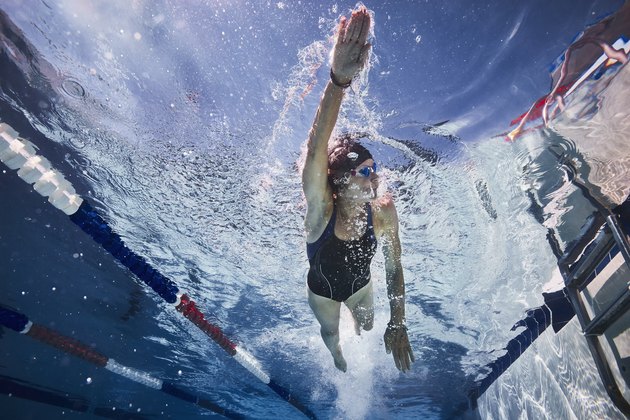Can Holding Your Breath Under Water Increase Your Running Ability?
Advertisements
Running requires several physical attributes: strong, endurance trained muscles, strong joints and tendons, and high vital capacity. When your lung function is not good, you may encounter breathing difficulties during exercise, such as shortness of breath. Holding your breath underwater can increase your lung strength and capacity. (picture: Patrick Giardino / the image bank / gettyimages) athletes, especially runners, train their lungs to increase the ability and strength of breathing muscles. Holding your breath underwater can improve your lung function and give you a swimmer's vital capacity, which also helps improve your running ability. It is suggested that holding your breath underwater can increase your vital capacity and lung capacity. The volume of your vital capacity can be increased by holding your breath underwater. Synchronized swimmers can hold their breath underwater for a minute, according to olympic.org. In an aerobic ranking test conducted before the 2012 London Olympics, synchronized swimmers were found to be second only to long-distance runners. Through underwater training, you can increase the oxygen content of your lungs. Runners who do similar exercises may find that they breathe more easily during a run and do not feel breathless during a long or intense run. Improved diaphragmatic control diaphragmatic membrane is a muscle close to the lung that helps you breathe in and out. Water training teaches you how to control your muscles better. When swimmers hold their breath underwater, the diaphragm can spasm, causing them to breathe heavily to recover. However, through training, you can learn to overcome and gain greater control of the diaphragm muscles. According to data from the national heart, lung and Blood Institute, lung volume test can accurately determine how much air your lung can hold. Improving muscle strength and control can help you breathe more effectively and avoid breathing. Advertisements increase vital capacity by swimming. In addition to holding your breath underwater, swimming can improve lung function. Swimming.org recommends swimming breath control training to better improve what they call aerobic exercise - the amount of air you breathe and exhale. Since humans usually exhaust only 75% of the air in their lungs, the rest is stale at the bottom. Our idea is to stand in the water and bend your legs until your chin touches the water. Take a deep breath, then go down until your nose and mouth are underwater. Do it slowly until you empty your lungs. Stand up and inhale. Repeat the exercise six times. This is just one of many underwater swimming skills, which can improve your vital capacity as a swimmer. Runners may experience improvements in lung function by incorporating swimming and breathing training into their training programs. Be careful if you decide to hold your breath underwater. If you are not careful, you are at risk of drowning or tissue damage to the heart, brain and lungs. It can be dangerous to deprive important tissues of oxygen for a long time. Start slowly to help your body adapt to reduced oxygen intake, especially if you have difficulty breathing while swimming. In addition, the presence of another person while you are underwater can reduce your risk of fainting or drowning in the pool.
Advertisements





